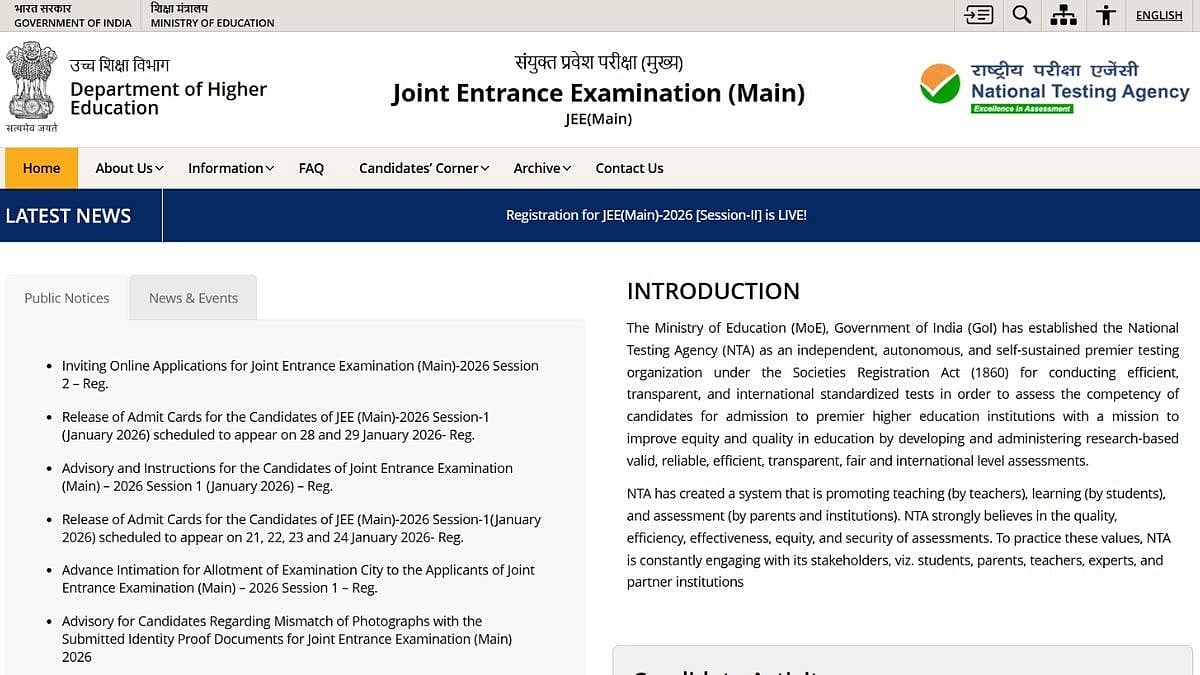The Union Budget overall looks positive and is focussed on an economic recovery mindset, with the pandemic and its repercussions as its premise,s said fintech sector and those in the finance sector. It is a growth-oriented budget offering a slew of measures to drive consumption, investment, and economic revival in the aftermath of the pandemic, they said.
Akash Sinha, CEO & Co-Founder, Cashfree Payments
Budget 2022 is a reflection of consumers' trust in digital-first approach to banking & finance. Economic Survey 2022 highlighted that UPI is currently the single most extensive retail payment system by volume, reiterating its wide acceptance. This has contributed immensely towards driving digital transformation in the country. Additionally, the idea of setting up digital banking units in multiple districts will help in the homogenisation of the financial services in rural and semi-urban geographies. The launch of digital currency by RBI is both encouraging and critical in empowering the digital native youth to take a transformational leap from the conventional currency tools.
Amit Nigam, COO & Executive Director, BANKIT
The fintech industry is an ever-growing sector of the society. As digital payments have grown at rapid pace, the benefits of digital banking should reach every nook and corner. So, 75 digital banking units will be set up in 75 districts by scheduled commercial banks that will be like icing on the cake. Focus on the usage of Digital Payment Apps will also be enhanced from our end. All the 1.5 lakh post offices in India will be connected to the core banking system that will enable people to access their accounts online and transfer money within post office accounts and to other banks also. As tax incentives for start-ups to be incorporated until March 31, 2023, Union Budget sounds favorable for Fintech start-ups. Next phase of “Ease of Doing Business, Ease of Living” is also ready to be launched.
Ankur Gupta, Founder and CEO, Ruptok Fintech Pvt. Ltd., a fintech platform for gold loans.
Continued incentives for startups will help them curb the impact of COVID. We are glad to see a digital-economy-focused budget. The proposal to set up 75 digital banking units is an incredible push for the lending sector in India. Digital adoption and payments will also expedite the growth of fintech startups in the country. This move will help India to become a digital-first country.
Ashish Jain, CFO, LoanTap, a digital lending NBFC
The Budget is progressive and addresses all the major expectations from various sectors including fintechs, EVs, MSMEs, startups, etc. Allowing an extension of tax incentive by another year will hugely benefit the newly started ventures and will motivate the players to contribute to the macro-economic growth. The FM has suggested to setting up an expert committee to monitor mobilization of funds to start-ups through VCs and Private equities which is a major welcome step. The introduction of central bank digital currency will further boost the digital economy and will hugely benefit the fintech ecosystem.
Bhavin Patel, Co-founder & CEO, LenDenClub
Union Budget 2022-23 started on a positive note with a vision for India@100. The measures announced have huge potential to pave a robust growth path for the next 25 years which an make India truly progressive, technologically advanced, and financially strong. Laying substantial focus on MSMEs who account for more than 30 percent of India's GDP is extremely encouraging which will go a long way in driving economic growth and employment. The 6,000-crore programme to rate MSMEs to be rolled out over the next five years and the extension of the Emergency Credit Line Guarantee Scheme (ECLGS) till March 2023 are huge strides towards enhancing capital access to MSMEs’ and making them more resilient and competitive. Although few tax slabs were anticipated, especially if returns from Peer-to-Peer (P2P) lending investments may have been exempted under Section 80C of the Income Tax Act or a different provision could be carved out to minimize tax rates, it would have encouraged investors to invest more.
Dilip Modi, Founder, Spice Money
It is extremely heartening to see the digital economy and fintech technology-enabled development being a key focus area for Budget 2022-23. The government’s proposal of setting up 75 Digital Banking units in 75 districts of the country and providing online fund transfer between post office accounts and bank accounts will help in adding further tailwinds to expand necessary banking services to the last mile and enable us to take a step further towards our goal of financial inclusion through rural empowerment. The government’s continuous focus on the digital payments ecosystem has paved the way for digital adoption amongst the unbanked and underbanked population of the country especially post the outbreak of the pandemic. We are hoping to see a much higher traction this year that will address the current challenges faced by the citizens and create a AtmaNirbhar Bharat.
George Sam, Business Head & Co-Founder at Mindgate Solutions
We applaud the government’s conviction in digital banking and welcome the move to set up 75 Digital Banking Units in 75 districts in the country. This will be a step towards ensuring the citizens of the country, especially in the rural setting, are empowered and benefitted through digital banking systems. This was something quite visible in urban areas so far. Thus, the nation-wide transformative potential of the FinTech sector is well poised to be realized. Furthermore, the introduction of Digital Rupee is a landmark decision. We expect this will potentially be more disruptive like UPI. While it will enable efficient currency management as an immediate benefit, it will also accelerate the target of a digital and financially inclusive India.
Harshil Mathur, CEO & Co-Founder, Razorpay
Budget 2022 finally focussed on digital currency with the introduction of the digital rupee using blockchain technology in 2023 which I believe will help in reducing financial and physical efforts required for money management. To bolster the startup and fintech ecosystem, we welcome the government’s decision to establish thematic funds to promote and encourage sunrise sectors in India. The introduction of thematic funds, where the share of the government would be limited to 20 percent, the Government of India has established a constant flow of capital for the sector, enabling it to innovate and grow, while at the same time generating wealth for investors. Focus on digital Banking and fintech if coupled with measures for ease of doing business should help give the much-needed thrust to already growing start-ups, particularly in the fintech sector.
HP Singh, Chairman & Managing Director, Satin Creditcare Network
Budget 2022 highlights financial inclusion by boosting efforts on digital banking and pushing for a robust infrastructure for fintech innovation in the Banking and NBFC sector. The announcement of ECLGS being extended till March 2023 with an assured cover increased by Rs 50,000 crore will bring the scheme's total coverage to Rs 5 lakh crore. This expansion immensely strengthens lending to SME and MSME businesses. Simultaneously, the CGTSME overhaul would provide an additional incentive for banks to boost loans to the public.
Jaya Vaidhyanathan, CEO, BCT Digital
The Union Budget 2022 has lived up to expectations on many fronts. The FM has delivered a budget that addresses holistic measures to take the economy towards the $5 trillion target. Overall finances seem to be in good shape, with fiscal deficit for FY22 at 6.9 percent, and GST collections at a record Rs.1.4 lakh crore in January. Capex budget has been increased by a steep 35.4 percent, which is the need of the hour. The highlight for the year has been the unfaltering focus on complementing macro-economic growth through micro measures, such as all-inclusive welfare, domestic production, tech-aided development, and public infrastructure, while pushing the envelope on the energy and climate agenda – a tall order.
The fintech industry will welcome announcements such as 100% CBS coverage for the post office, liberal regulation for the GIFT IFSC centre, and heightened emphasis on fintech education. All of these acknowledge the government’s efforts to transform India into a global fintech hub. The FM has also announced FY23 as the timeline for the much-awaited RBI CBDC – the digital Rupee. Crypto enthusiasts will appreciate the clarified stance on cryptocurrency, although gains will be taxed at 30 percent with 1 percent TDS.
Joginder Rana, Vice Chairman & MD - CASHe
The Finance Minister must be congratulated for striking a right balance of growth and stability. The Budget is growth-oriented, virtually touches all sectors, and lays down a path for a future-ready digital India. The monetary support for the digital payment ecosystem is a welcome move and also appreciable is the introduction of the blockchain-aided 'Digital Rupee'. Its instantaneous feature may disrupt the entire financial transactions like transfers, payments, credit etc. It certainly sends a strong message that India is at the forefront of technology adoption. Finally, the extension of the ECLGS scheme will be of immense help for MSMEs as it will give the much-needed impetus for new businesses to come to the fore.
Kavitha Subramanian, Co-Founder, Upstox
The Finance Minister has presented a digital-first Budget that focuses on quick, holistic, and inclusive economic growth. The focus on start-ups and fintech in this year's Budget is a fantastic step that will help these sectors grow further. The introduction of 5G and the spread of optical fiber to villages would provide a boost to the Fintech industry. It encourages digital investment platforms like ours to expand their services, resulting in an increase in retail activity in Tier 2-Tier 3 cities and towns. The Central Bank Digital Money (CBDC) will help to enhance the digital economy by making currency management more efficient and less expensive. The capping of surcharge at 15 percent on Long-Term Capital Gains (LTCG) tax for all listed and unlisted corporations responds to a long-standing demand for new-age businesses.
Ketan Patel, CEO, MSwipe
The fintech ecosystem requirements have been well addressed in the budget. Measures to boost skill development through public private partnerships, and by incentivising courses on fintech through world class education institutions will definitely help the work force and the ecosystem. The government’s outlay on capital expenditure, includes the proliferation of digital payments, and technology infrastructure expansion for MSMEs, both of which brings much cheer to the ecosystem players as they make efforts to drive digital penetration across India.
Krupal Parchure Head Fintech & Payment Solutions, MYn
I believe the Budget 2022 is an amazing take by the government. They have covered most of the key focus areas and have announced some very calculated measures and policies. Another landmark achievement would be the introduction of digital currency. It decreases the dependency on cash, transactional & settlement costs. However, there are many areas that are not aligned well. For example, Budget 2022 promotes gaming platforms, drones for crop digitization and land records, e-passports and open platforms for health services which leads the path for Digital India. But it arises the question- will a citizen’s health records be exposed to big tech? The fact is these initiatives need a very strong data privacy setup and Indian data privacy laws need clarity. So, Is India ready to take data privacy seriously now?
Mandar Agashe, Vice-Chairman & MD, Sarvatra Technologies Ltd
It is a digital budget. It has been an overall balanced budget with many positive announcements relating to digitization. We appreciate the government for taking a step forward with its 'Digital India' initiative by proposing 75 Digital Banking units in 75 districts by scheduled commercial banks. The measure will ensure the acceleration of digital payments across the country. Further, introducing an online e-bill system will reduce payment delays and be wholly paperless and end-to-end encrypted. Given the rapid rise of digital banking, digital payments, and fintech innovation, it was critical to develop digital infrastructure to support digital banking, which has enormous potential. Another excellent initiative of bringing in a blockchain-based digital rupee will lead to instantaneous financial transactions instead of the current digital payment system. We foresee that the digital rupee will be a game-changer and might outperform other digital currencies which are currently available.
Madhusudan Ekambaram, Co-Founder & CEO, KreditBee and Co-Founder, FACE (Fintech Association for Consumer Empowerment
Union Budget 2022-23 had special emphasis on financial inclusion, technology adoption and entrepreneurship in the Union Budget 2022 -23, which is highly appreciable. Initiatives like Desh stack e-portal and interlinking of Udyam, e-shram, NCS and Aseem portals will surely contribute to the Digital Infrastructure and entrepreneurial push. Introduction of Central Bank Digital Currency (CBDC), leveraging blockchain technology will influence the digital transactions and hence its implementation process will be something to pay attention to. It is encouraging to see the Government’s bid to boost digital banking and financial inclusion with initiatives like bringing 100 percent of 1.5 lakh post offices into the core banking system.
Prabhtej Bhatia, Co-founder, Falcon
I think the government has given a great push to boosting digital payments in India – both through fiscal measures to augment the infrastructure and through specific measures like launching Digital Banking Units and bringing Post Offices to offer core banking services. This will definitely widen the scale of digital financial infrastructure in the county and also boost the embedded finance space as there will be faster adoption of Fintech solutions from all players targeting the semi-rural and rural parts of the country. Also, thisBudget has identified the growing importance of fintech in the economy with several measures such as fintech courses through world class institutions to train the workforce in India. This will go down as a seminal decision taken by the government in proliferating the Fintech ecosystem in the country for years to come.
Prem Kumar, Founder & CEO, Snapbizz
The focus for the fiscal year 2022-23 is clearly on infrastructure investments, digitization, and financial inclusion. The emphasis on infrastructure investments is likely to drive sustained employment growth while the MSME and Fintech sectors are expected to drive inclusive recovery and financial inclusion. With accelerated digitization resulting from the pandemic and the Digital India push, the digital payments sector has flourished while redefining the retail sector. More reforms are also expected to be implemented to help small retailers become more Aatma Nirbhar, thereby sustaining and strengthening the local retail ecosystem.
Rajan Bajaj, Founder and CEO, slice
The government's increasing focus on deepening digital banking is encouraging. Setting up Digital Banking Units across districts and creating access to digital banking is a step in the right direction towards achieving our financial inclusion goals while we wait for more clarity on the precise definition of DBUs. Backing all of these efforts with a world-class fintech hub that the Government has proposed to set up will transform the way financial services are delivered.
Rakesh Kaul, CEO, Clix Capital
The announcement of a digital rupee using blockchain is exciting per se, but one needs to wait and watch whether there will be any specific benefits for this asset class. But the 30 percent tax on any income from the transfer of digital assets can act as a dampener on efforts to create a virtual digital economy. The capping of surcharge on long-term capital gains tax at 15 percent on transfer of any asset type is another commendable measure. Overall, the Budget should give a boost to the fintech segment.
Rohit Garg, CEO and Co-Founder, SmartCoin
This year's Union Budget focussed more on digitization, startups, and good tidings for the VC/PE industry. The initiatives announced by the Government today will not only drive young, aspiring entrepreneurs but will also uplift small businesses in the country. The launch of Digital Rupee using blockchain technology only shows that India is on the right track towards technology adoption and this is surely a positive move. This much-awaited push on digitization will pave the way for financial inclusion and it is just the beginning.
S Ravi, Former Chairman of BSE, Founder & Managing Partner, Ravi Rajan &Co.
The Union Budget is a growth-oriented budget focusing on rural infrastructure, cooperative societies and improving connectivity through PM Gati Yojana. Gati Sakthi would really catalyse the growth. Reduction of MAT and surcharge for cooperatives is a welcome step. Laying down of optic fiber in villages and rural india is a step to unifying urban with rural india. Agriculture tools would be cheaper which is a very good step for farmers. This Budget also clarifies about government’s stand on crypto currency by stating that digital currency would be part of the economy from the year 22 -23. Taxing of crypto transactions including gifting to the extent of 30 percent of income is a very significant step.This step actually gives a way forward for the crypto industry.
S Anand, CEO and Co-Founder of PaySprint, a fintech venture focussed on Next Gen Neo Banking Solutions
"Overall, the Budget is short and simple with focus on investment, infrastructure and digital. It is a progressive Budget and happy to see the focus on digital payments and continuation of allocation of Rs 1,500 crores in this financial year. Startups seems to be the flavor; extension of tax incentive for one more year, will surely boost the new ventures. The introduction of Central Bank Digital currency by 2023 is a welcome step towards a digital economy. Just as China has been pushing for the Digital Renminbi, now India too will have its own Digital Rupee.
Sagar Agarvwal, Co-Founder and Partner, Beams Fintech
Fintech plays a critical role in giving small enterprises and individuals in rural places with access to organized credit. We appreciate the government's decision to reduce the TDS rate for Fintech businesses to 1%. This has freed up much-needed working capital. A tax system that is friendly to capital gains will encourages simple access to capital and result in increased job creation. The extension of the Emergency Credit Line Guarantee Scheme (ECLG) by the FM has helped to boost lending to the MSME sector. The Union Budget for the year 2022-23 has a comprehensive set of policy initiatives focused at assisting MSME recovery.
Sasidhar Thumuluri, MD & CEO, Sub-K
The Budget is a well-marked one in many senses. It rightly strikes a reasonable balance between addressing the key pillars of health and well-being, Inclusive development, Human Capital, innovation and R&D, apart from laying the path for a robust economy. India's growth is highest among all major economies; we are now in a strong position to withstand challenges. India is now on a path of making the national growth inclusive and Budget 2022 will act as a catalyst for financial inclusion in India. Setting up 75 digital banks, an integrated portal for MSMEs, 100 percent digitization of post offices and central bank digital currency are welcome moves in this direction.
Santanu Agarwal, Deputy CEO, Paisalo Digital
The Budget showcases India’s vision on creating a Financial Inclusion along with Digital India walking hand in hand with Public-Private Partnership’ leading to the creation of ‘Atmanirbhar Bharat’ and with its blueprint of ‘Amrit Kal’. Key announcements on technology, innovation, research, and development are steps in the right direction that will enable India to become a Global Leader and Hub in Fintech and talent, thereby ensuring India achieves its Economic and Digital growth.
Shankar Nath, Co-Founder, Junio, Kids Digital Pocket Money Cum Smart Card platform
I firmly believe that the introduction of the digital rupee is a very progressive step and, this will ultimately drive growth in the digital economy. This will help to promote a cheaper currency management system, and faster lending and payments. Moreover, it is a clear indicator of a cashless economy that gives impetus to the government's focus on cashless payments. I am confident that Gen Z will take to the digital currency and tools in a massive way once it is launched. Apart from the above, schemes that favor children, tax incentives & support to startups, and an increased focus on digitization, make this Budget quite inclusive for millennials.
Shachindra Nath, Executive Chairman and Managing Director, U GRO
Union Budget 2022-23 is highly crucial to align Indian economy’s growth trajectory. It is essential that the Hon'ble Finance Minister announces effective measures to enable speedy recovery and growth of the MSMEs, considering the sector’s significant contribution to the economy. It is encouraging to see Government’s support for the MSME sector in last 12-15 months and we believe the efforts will only become more prominent in the time to come.
In past few years, operationally nimble and technologically oriented NBFCs and Fintechs have deepened the credit penetration to the underserved regions of the country. Hence, in the upcoming budget, policymakers should provide due consideration to boost liquidity support to the NBFCs as well as encourage frameworks like co-lending, which will greatly boost the reach of financial institutions and progress in the financial inclusion imperative. EASE 4.0 talks about Co – Lending between Banks and NBFC as a means to increase the credit penetration, however the treatment of Tax Deduction at Source (TDS) treatment for NBFC and Banks are different and that is proving to be a major operational challenge to accelerate credit. It is expected that TDS rules would be harmonised between Banks and NBFCs.
Suhail Sameer, CEO, BharatPe
We welcome the new Budget announced by our Honourable Finance Minister. This Budget will fuel the next level of growth of the Indian economy. The Budget has re-emphasized that digital payments and FinTech innovations have grown at a rapid pace in the country. The Government is continuously providing thrust to ensure digital banking reaches every new nook and corner of the country and this is extremely encouraging. We strongly appreciate the government’s decision to set up 75 digital banking units in the country. This will help promote digital payments aggressively in the country and drive financial inclusion further. The introduction of RBI approved digital rupee is another landmark move- it will disrupt the Indian payment system and add a new dimension to the financial system.
Tushar Aggarwal, Founder & CEO, Stashfin
The Finance Minister has announced support for digital payment and banking in the Union Budget 2022-2023, which will be welcomed by the sector. The government is taking steps to ensure that digital services reach even remote areas in the country. India’s digital payment and banking industry has shown stellar growth, and Stashfin along with the government would like to bridge the gap between financial institutions and users across the country.
Varun Sridhar, CEO, Paytm Money
Accelerated investments into core sectors that have a big multiplier effect on GDP, coupled with a focus on job creation, skill development and facilitating digitally enabled financial inclusion summarises the Union Budget. Stability in the tax regime is also commendable as it makes investments predictable. The Government has also opened doors for digital currency and its different uses making the budget historic for the financial services sector.
Vikesh Agrawal CEO of AjvaFintech
There has been concentrated efforts in the budget to fill the much-needed credit gap for the stressed sector – ELCGS extension specially for the struggling hospitality sector was much needed, the sector however, will take some more time to revive, unlike other sectors. The proposed CGTMSE revamp will help the micro sector, which could not avail ECLGS earlier because they did not have existing credit outstanding, which was the basic requirement for availing ECLGS. PLI extension to more sectors and increased fund allocation shall boost the MSME being backward linked. Payment delays have been a big challenge for MSME for government procurement, 75 percent bill payment within 10 days is a welcome step.









